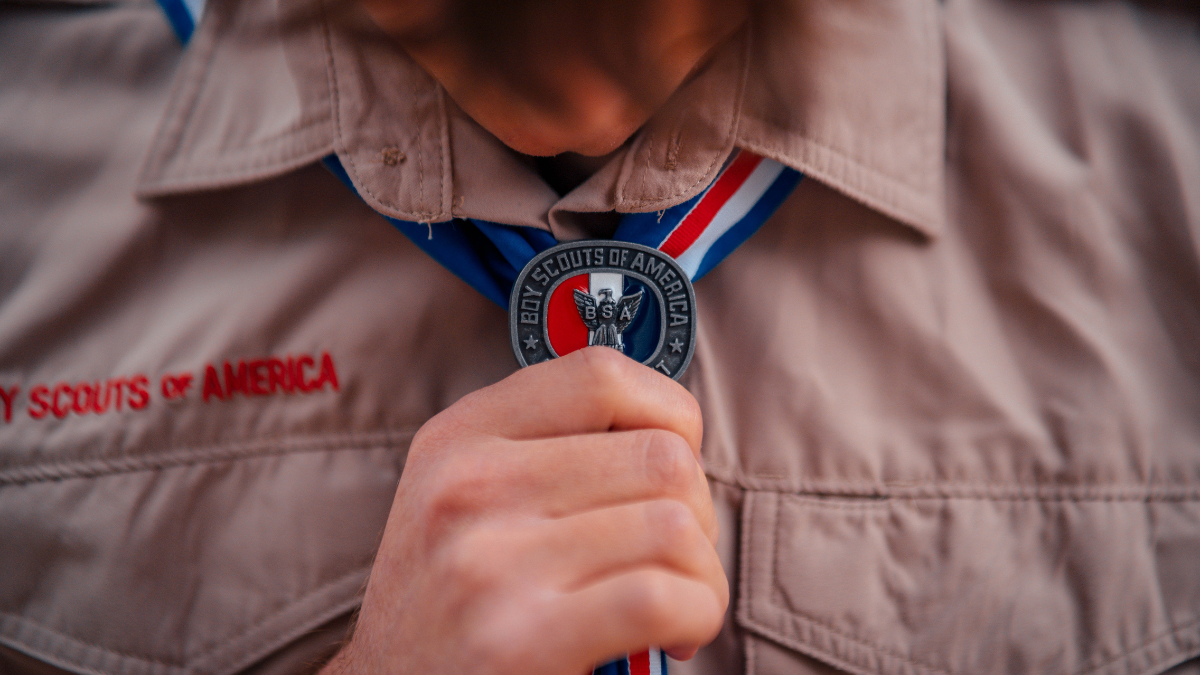

The Lost Boy Scouts
The once venerable organization is in free fall, and it’s not Covid’s fault.
08/16/23
John Stonestreet and Shane Morris

Few voluntary associations in American history have had as deep and wide an influence as the Boy Scouts of America. The training ground of soldiers and senators, pastors and presidents, the organization effectively instilled values like trustworthiness, loyalty, courteousness, thrift, bravery, and reverence in many of the over 100 million young men who joined in its over 100-year history. In fact, for much of the 20th century at least, “Scout’s honor” was among the highest assurances one could give of their honesty and integrity.
However, if the only evidence considered was the Boy Scouts of 2023, it would be hard to imagine that this long and storied history ever took place and that the organization ever helped boys mature into virtuous manhood. Ten years ago, the Boy Scouts of America allowed openly gay members for the first time. Soon thereafter, an avalanche of sexual abuse allegations, many of them decades old, forced the Scouts into bankruptcy and a 2.5-billion-dollar settlement. Since then, the organization has been in membership free fall.
This year, for the first time since 2017, the Scouts held their National Jamboree in the hills of West Virginia. Reporter Mike De Socio attended and, writing in The Washington Post, described the shell of an organization he encountered. This year’s Jamboree drew only 15,000 scouts compared to 40,000 at the previous Jamboree in 2017. Between 2019 and 2021, the Boy Scouts lost 62% of its membership, and there’s no sign of a post-COVID recovery. As Carnegie Mellon’s student newspaper put it, the Boy Scouts “is a dying institution.”
Despite this, De Socio, who identifies himself as gay, praised the progressive palooza the Jamboree has become. Specifically, he touted the pride tent, complete with “LGBTQ Pride flags and a string of multicolored lights, … tables covered with bowls of rainbow bracelets, pronoun stickers and diversity patches” and that a diversity merit badge is now required to become an Eagle Scout.
According to De Socio, the blame for the organization’s near collapse should fall on the abuse scandal and the pandemic. Certainly, these factors hastened the demise we now witness, but it’s as if the author cannot imagine how the Scouts’ enthusiastic embrace of LGBT ideology over the last 10 years sealed its fate. In the same period, a Christian organization for boys called Trail Life USA saw a 70% increase in membership.
In fact, the pattern matches the long-term dwindling of mainline Protestant denominations. When an organization, whether a church or a youth association like the Boy Scouts, forgets or rejects why it exists in the first place, it soon stops existing. Once liberal mainline churches stopped offering anything distinctly Christian and offered the same progressive, all-accepting, therapeutic talking points as Oprah and NPR, why go to church?
Much the same can now be said for the once venerable organization we call the Boy Scouts. The sexual abuse scandal may have fatally undercut the group’s claim to trustworthiness and integrity, as well as the perception that they provide a safe and wholesome place for boys to grow into men. However, throwing open the doors to LGBT ideology changed the very nature of the organization.
Not only did the Scouts begin (ironically) promoting sterile lifestyles that would deprive the organization of future members, it also became a place where evil is called good and children are herded into life-destroying behavior and beliefs. This not behind closed doors as with the scandals, but proudly in the open, on charter documents, and at Jamborees. By the time the Boy Scouts decided to undermine their name by admitting girls, I imagine most families had already asked themselves, “What’s the point?”
To be clear, the loss of the Boy Scouts, despite its flaws, is huge. What other institution shepherded generations of boys toward responsibility, self-mastery, and moral living? Our whole society would be a poorer and less trustworthy place had it never existed. I hope that churches and Christian programs like AWANA and groups like Trail Life USA seize the moment and make up for this profound loss.
I also hope all organizations learn that they only remain good as long as they remember their purpose. When they succumb to trendy ideologies and the spirit of the age, they not only lead their members astray, they also make themselves unnecessary and, in this case, leave their very necessary work to someone with conviction.
This Breakpoint was co-authored by Shane Morris. For more resources to live like a Christian in this cultural moment, go to breakpoint.org.
Have a Follow-up Question?
Up
Next

Related Content

© Copyright 2020, All Rights Reserved.













